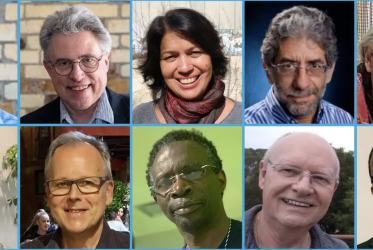Displaying 1 - 20 of 1934
Taxes and gender justice: how do we bridge the divide?
25 April 2024
WCC extends prayers for lasting peace in Haiti
11 April 2024
A global outlook from different angles
10 April 2024
WCC, WHO commemorate 50 years of collaboration
04 April 2024
Compendium of Promising Practices of African Faith Community Interventions against Paediatric and Adolescent HIV
Executive Summary
23 March 2024















